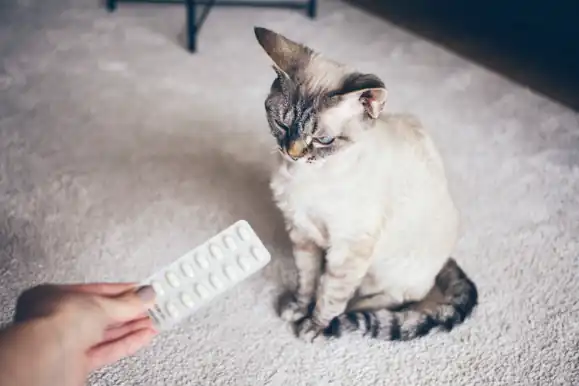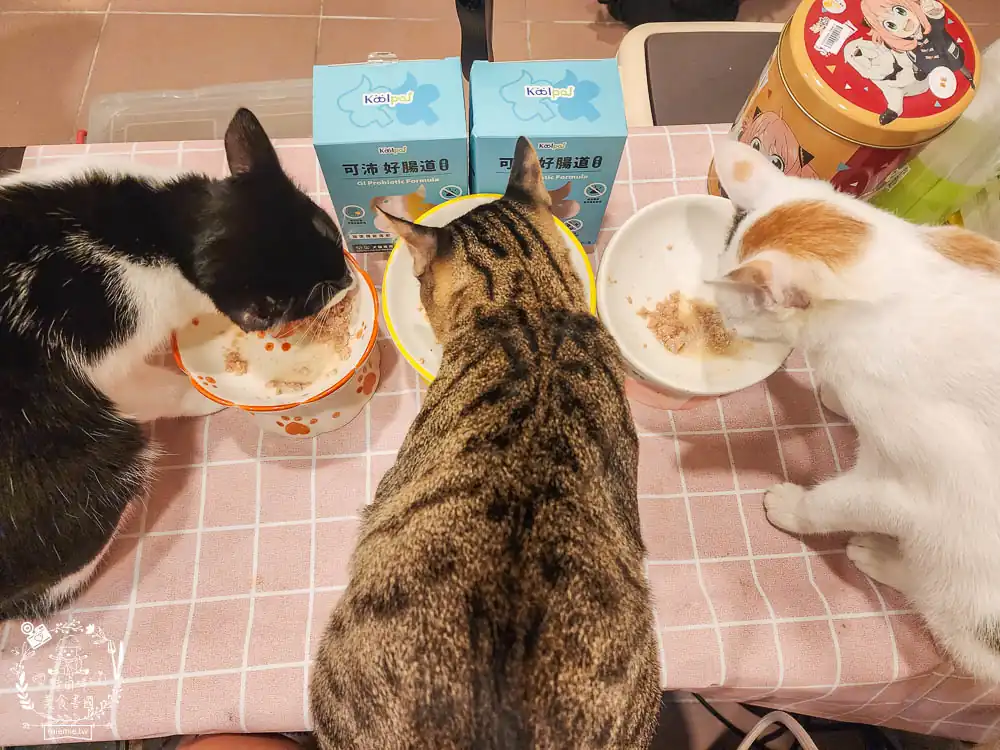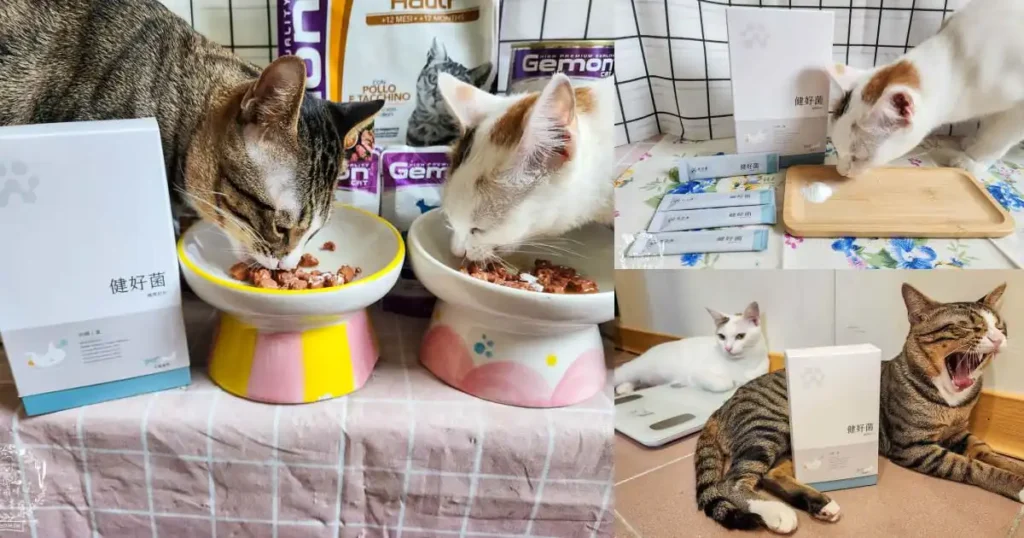Why do cats need probiotics?
Your cat’s intestinal tract is home to hundreds of millions of bacteria, both good and bad, which work together to maintain a healthy balance in your cat’s intestinal tract.
When cats are under stress, have an unhealthy diet, suffer from indigestion or anxiety, the bad bacteria in the intestines may outnumber the good bacteria, leading to an imbalance in the intestinal flora, causing gastrointestinal discomfort, and even negatively affecting the overall health of cats, especially young and old cats with weak immune systems.

Most of the pet foods on the market are sterilized at high temperatures, which can effectively kill the bad bacteria, but at the same time, the good bacteria that are beneficial to cats are also lost in the process, making it difficult for cats to get enough good bacteria through their daily diets.
This makes it difficult for cats to get enough good bacteria through their daily diets. Proactive supplementation of probiotics can help restore the balance of the intestinal tract, inhibit the growth of bad bacteria, and increase the amount of good bacteria in the cat’s body, thus improving the cat’s state of health!
What are the benefits of probiotics for cats?

Probiotics for cats can effectively maintain the balance of intestinal flora, add good bacteria to the body, and have the following benefits:
1. Relieve constipation or soft stools
When your cat has an unhealthy diet or digestive problems, consuming probiotics for cats can promote gastrointestinal peristalsis, help food absorption and relieve constipation or soft stools.
You can observe your cat’s feces to see if they are healthy, and with Planet Woof’s Gastrointestinal Probiotics, specially formulated with American Glutamic Acid, your cat’s feces can be improved!
2. Strengthen the immune system
If the intestines are not healthy, the immune system will not be good! Taking probiotics can help strengthen your dog’s immune system.
If your baby is taking antibiotics, probiotics are a better choice. Since antibiotics eliminate both good and bad bacteria, taking probiotics after taking antibiotics can help compensate for the decreased immunity caused by antibiotics.
3. Reducing Stress and Anxiety Symptoms
There are millions of nerves connecting your cat’s intestines to the brain, so an upset stomach can trigger symptoms of stress and anxiety. In other words, improving gastrointestinal health can reduce symptoms of stress and anxiety.
4. Solve allergies and skin problems
Your cat’s skin is very important to its health, as it not only fights off germs and bacteria, but also prevents the loss of water and calories. However, because your cat’s skin is in direct contact with the outside world, it’s even more important to strengthen the skin’s barrier and prevent damage to its health.
By ingesting Planet Woof’s Skin Probiotics, you can stabilize your furry child’s skin, helping to maintain skin health, improve skin problems, allergies, and even reduce itchiness!
How to take probiotics for cats? What happens if I take too many?

Probiotics for cats are very simple to consume! They can be taken directly or mixed with food.
It is important to note that if the probiotic is placed in food that is too hot, it may kill the probiotic. It is recommended that you do not mix probiotics with food that is warmer than 40 degrees to maintain their activity.
The dosage of probiotics for cats depends on the weight of the coat. If you do not follow the recommended dosage, and your cat takes too much probiotics at one time, the sudden increase in good bacteria in the gut will affect the balance of the intestinal flora, which may lead to diarrhea or constipation! This is likely to happen to cats that have just started taking probiotics, so it is recommended that Flora follow the guidelines on the product packaging, and if you are still worried that your cat may be taking too much probiotics, you can consult a professional veterinarian to ensure your cat’s health.
Probiotics for Cats Q&A!
(a) How do I choose the right probiotic for my cat?
There are many types of probiotics for cats on the market. The following are guidelines for choosing a probiotic for cats:
1. Contain appropriate strains of bacteria that are beneficial to cats.
It is not true that more strains are better for your cat! The key is to choose strains that are truly beneficial to your cat. The key is to choose strains that are truly beneficial to your cat. However, the diversity of strains should not be too small, and the right combination of strains will maximize the effect.
2. Strain numbering and labeling
The strain number is like the identity card of the probiotic, which can be used to trace the source of the probiotic and also confirm whether the probiotic is patented or not. If the strain number is not clearly labeled on the product, it is very likely that the probiotic has been taken from an unknown source.
3. Use of embedding technology
It is important for probiotics to survive in the stomach and work! The use of encapsulation technology can effectively prolong the activity of probiotics and ensure that they are still effective when they reach the intestinal tract.
4. International certification and original manufacturer’s authorization
Probiotics with international certification and original manufacturer’s authorization have gone through rigorous testing and scrutiny to ensure the quality of probiotics.
(b) Can kittens take probiotics?
Yes! The intestinal tract of kittens is still developing and any changes in the environment or diet may cause gastrointestinal discomfort, so it is more important to take probiotics to maintain intestinal health.
(c) Can kidney cats take probiotics?
Yes, kidney cats can take probiotics! Kidney cats can take probiotics, but they need to be more careful in the selection and use of probiotics. It is advisable to consult a professional veterinarian to ensure the health and safety of your kidney cat.
(d) Can cats take human probiotics?
No. The intestinal environment of humans and cats is different! People and cats have different intestinal environments and need different levels of probiotics. It is recommended that you give your cat probiotics that are specific to your cat so that it will not affect its gastrointestinal health!
